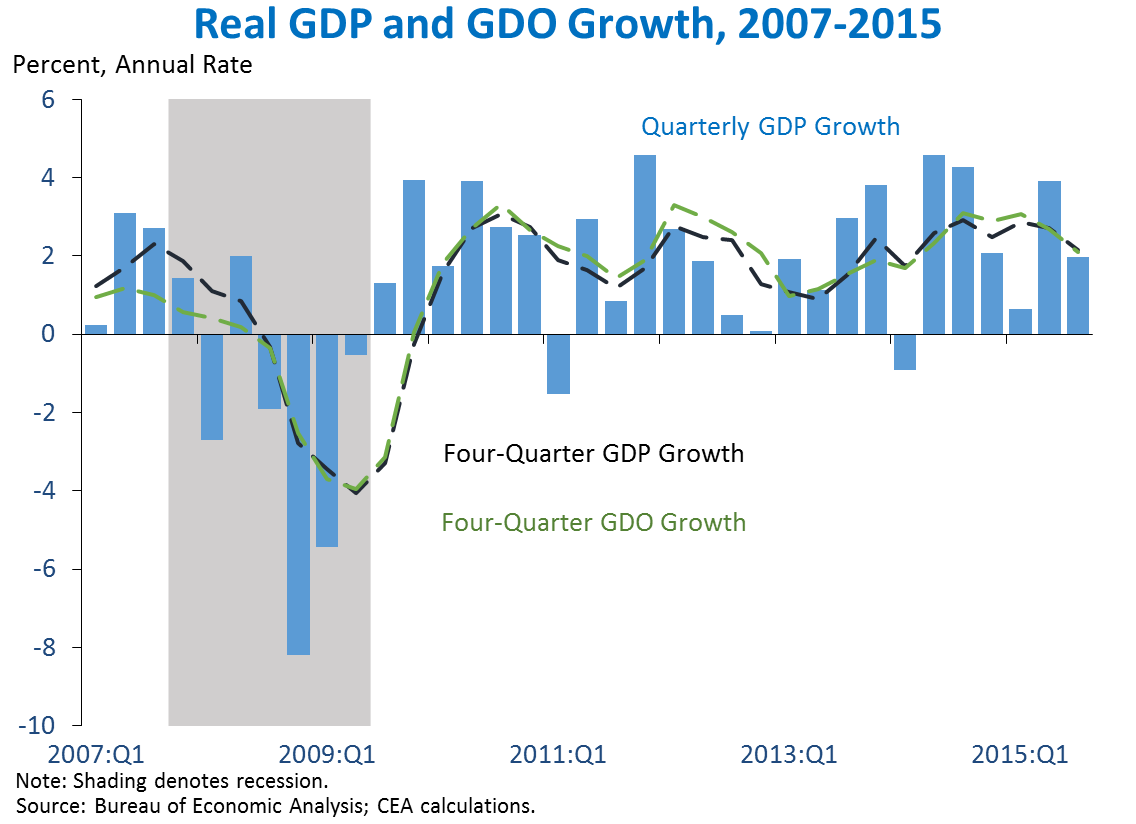A slight downward revision to the estimate of Gross Domestic Product in the third quarter of this year to 2.0 percent adds to economic forecasters’ sense that over the next few quarters, the U.S. economy will continue to experience sold, if unspectacular, growth.
As the slow recovery from the Great Recession proceeds, analysts expect around 2.5 percent annual growth for the U.S. economy in calendar year 2015, and something between 2.4 percent and 3.0 percent in 2016.
Related: 7 Unbelievable Ways the Government Wasted Your Money in 2015
According to Gus Faucher, senior economist with the PNC Financial Services group, that means that the U.S. will head into next year’s presidential election with economic trends continuing to improve.
“PNC is forecasting real GDP growth of 2.7 percent in the fourth quarter, and then 2.4 percent in 2016. This will allow for job growth of around 160,000 per month next year, pushing the unemployment rate down from its current 5.0 percent to 4.6 percent in late 2016,” Faucher wrote in a note to investors.
He said the recent decision by the Federal Reserve to begin raising interest rates from zero would have little impact on the economy.
“A gradual increase in the federal funds rate will not be a significant weight on growth in 2016,” he wrote. “Although the Federal Open Market Committee did raise the rate earlier this month, it is still very low, in a range of 0.25-0.50 percent. PNC expects three more 0.25 percentage point increases in 2016, which would bring the rate up to 1.00-1.25 percent at the end of next year.”
Related: Cheap Oil and Pricey Unicorns: The 20 Biggest Business Stories of 2015

White House Council of Economic Advisers Chairman Jason Furman, in a blog post Tuesday put the best possible face on the data.
“Third-quarter economic growth continued at a solid pace as domestic demand grew robustly,” he wrote. “Slowing foreign growth continues to weigh on output in the United States, underscoring the importance of policies that promote continued strong and consistent domestic demand.
“Last week’s omnibus budget and tax agreement will help encourage these positive domestic trends. But there is more work to do, and the president remains committed to policies that will boost our long-run growth and wages: including opening our exports to new markets through high-standards free trade agreements like the Trans-Pacific Partnership and raising the minimum wage.”
In an election year, of course, little of consequence is likely to happen on the legislative side of the policymaking process, which means that the economy will have to sputter along as best it can without much help from Washington.





